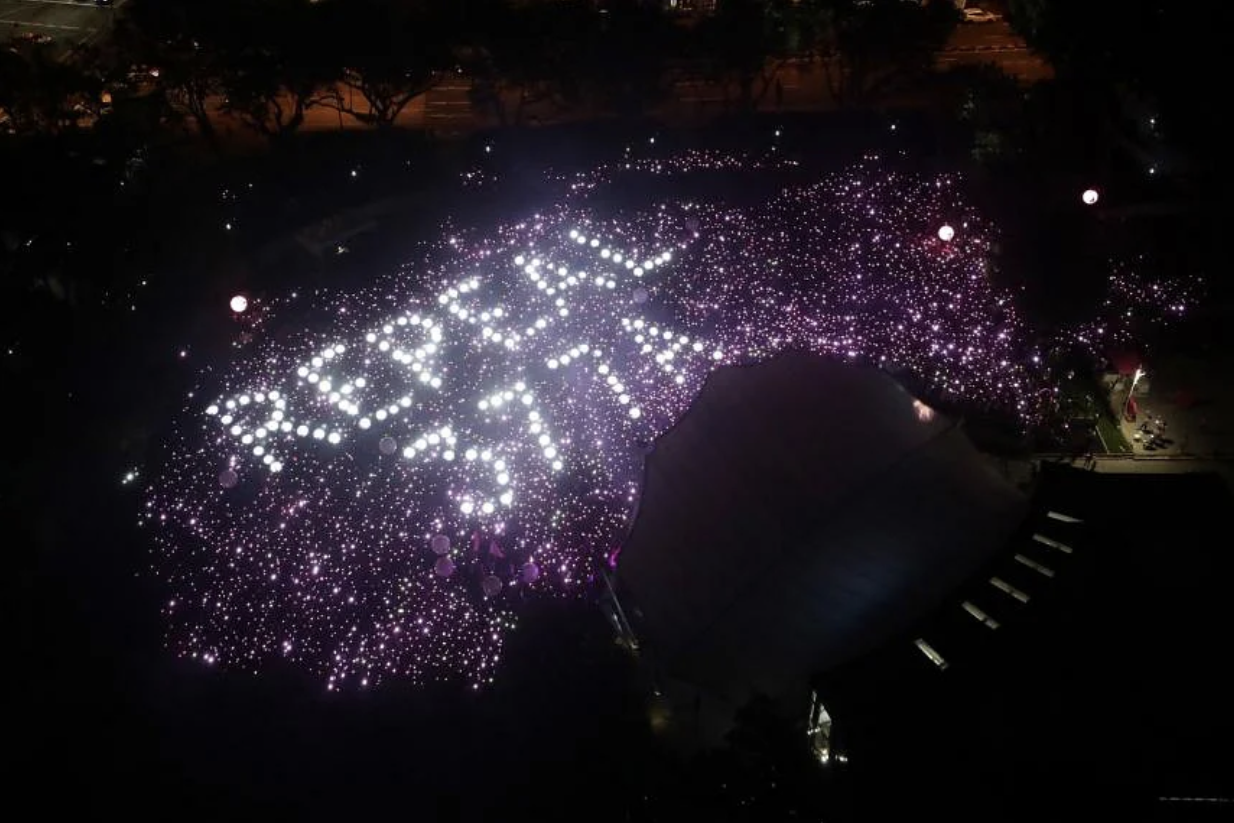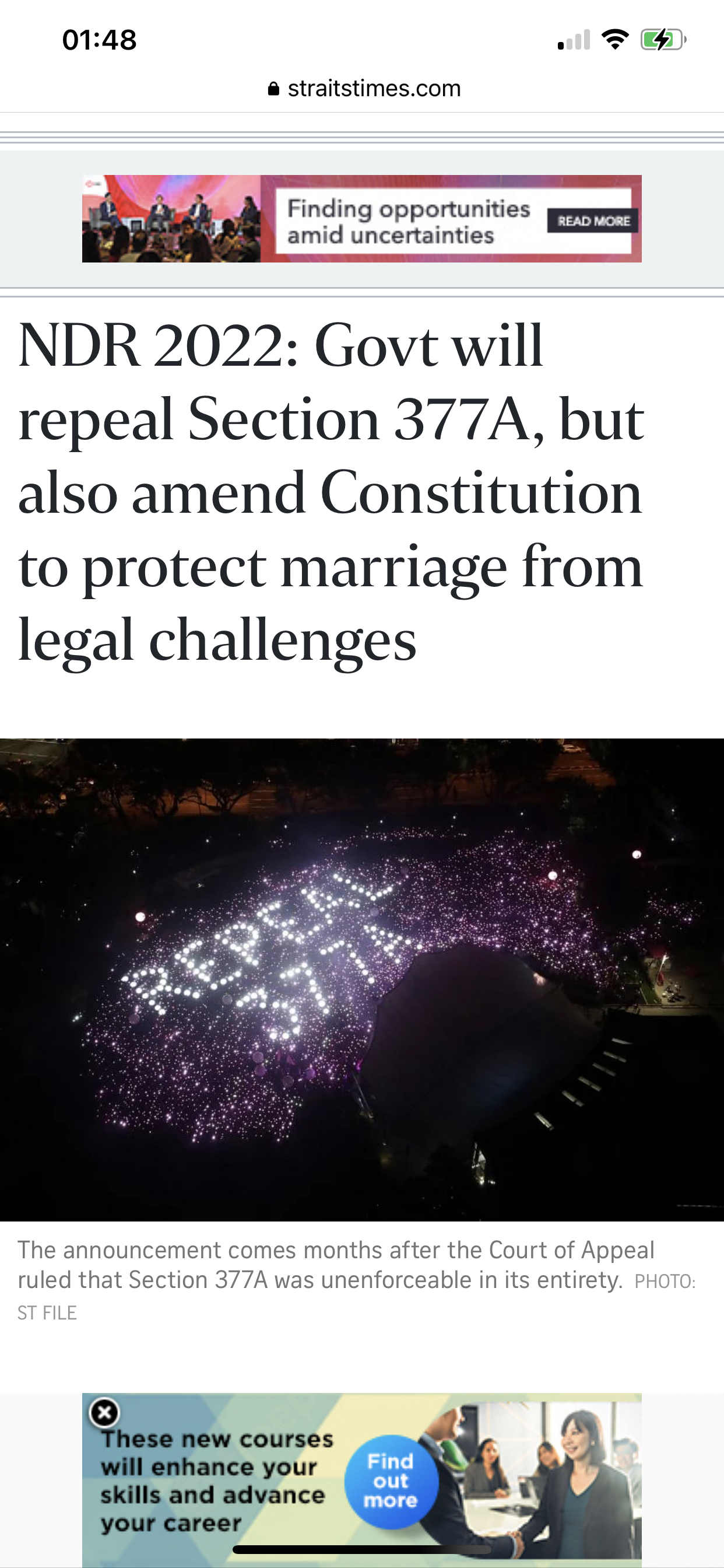
Photo: Blog/Beautifully Incoherent
OPINION | The pointless law of Section 377A: Finally, we learn the difference between sin & crime
It has taken a while, but the Prime Minister has finally stated that Singapore’s most pointless law, Section 377A, the section that criminalises anal sex between consenting adult men, will finally be removed.
At the same time, the government moved to ensure that the constitution would state that marriage is defined as the heterosexual variety. So, after years of lobbying by the likes of decent minded people like Siew Kum Hong, Remy Choo, Eugene Thuraisingam and M. Ravi, the Adam and Steve couples in Singapore can rest easy knowing that the law no longer makes them criminals for doing what everyone else does (be with the ones they love).
However, for the “Adam and Steve” couples, they will have to accept that the law will not recognise their union as anything more than that of two men choosing to live together.
As with every government announcement, this was anticlimactic in as much as there was a very loud discussion about repealing the act long before the announcement was made.
Events had moved to a level where there was no longer a rational and intelligent argument for keeping the law. India and Taiwan repealed their version of the law, thus eliminating the argument that Singapore was a conservative society where the majority disapproved of the law (there is no way Singapore can argue that it is more conservative than India or Taiwan).
The public health argument was demolished by the fact that section 377 was repealed (Yes, anal sex in unhealthy but why do we allow heterosexuals to have it but not homosexuals).
Those who wanted to retain the law could not provide a shred of scientific evidence that shows allowing two consenting adults to have sex in the privacy of their bedroom would somehow lead to the decay of the family.
When people brought up the fact that just about every religious text disapproves of homosexuality, Professor Tommy Koh made the point that just because something is a sin, it does not mean that it must be a crime (religious text condemn gambling, which is legal and even encouraged).
The most prominent argument for abolishing the law was the fact that in 2007, the government agreed to pacify the “religious” elements by keeping it but not promising the homosexual community (the law is very specific that it targets homosexuals rather than lesbians) that it would not be actively enforced. Why have a law that you do not intend to enforce?
If you ask the question of “who does this law protect” and “how does it protect” you would find that the only people who might be protected by this law would be repressed homosexuals who have been conditioned to look upon their own sexual urges as evil and needed the weight of the law to stop them from acting naturally.
Funnily enough, the biggest sign of how things were going to change was from a Linkedin post from Ms. Stephanie Yuen Thio, Joint Managing-Partner of TSMP Law. It was a rational and compassionate post, which hit on the key social issues regarding the homosexual community in Singapore.

This is surprising because Ms Thio not only belongs to one of the prominent families in our legal fraternity (both her Mother and Sister-in-Law are Professors of Law), she belongs to the family that has appointed itself the protector of Singapore’s sexuality (I avoid the term religious wellbeing because the Thio family is deathly silent on topics that Jesus was interested in – namely the wealth gap, homeless, treatment of migrants and other “low-life” characters).
Ms Stephanie Thio should be commended for her thoughtfulness, and the next discussion on the rights of the homosexual community should be based on the points raised by Ms Thio. The homosexual community will have to accept that change will not come overnight, but they must press on. They need to understand that the religious community has sensibilities that need to be respected. Getting aggressive will only be met with an aggressive pushback.
The religious community on the other hand needs to respect boundaries and focus its attention on social ills that their faiths worked to cure. Their energies need to be focused on things like alleviating poverty and increasing opportunity in a Singapore that is increasingly becoming a challenging place for those who get left behind.
Ms Stephanie Thio’s post has shown that we can have rational debates, and it’s time that we put our energies and ideas towards solving real social issues rather than trying to dictate who other consenting adults sleep with.
A version of this article first appeared at beautifullyincoherent.blogspot.com

